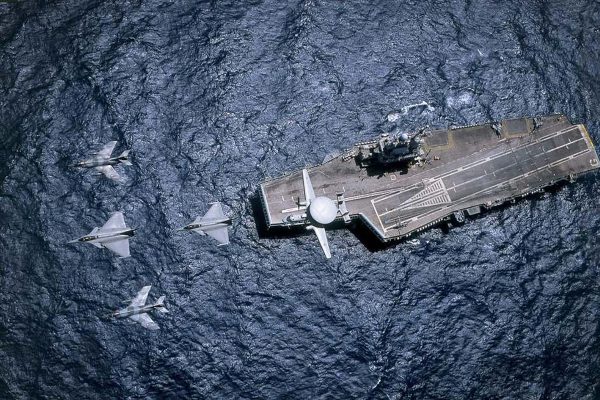
France and Germany are calling for closer EU defense cooperation in a policy paper seen by Bloomberg News and supported by Italy, Spain and other nations.
The ambition isn’t new. Emmanuel Macron and Angela Merkel called for a “true European army” in 2018.
But the timing is conspicuous, coming days after President Donald Trump said he would pull 9,500 American troops out of Germany, bringing the total to a post-Cold War low of 25,000.
Will this finally convince Europeans to get serious about their own defense?
Low spending
Trump insists Germany is “delinquent” in its payments to NATO, which is a farce. Germany never asked for American troops on its soil. America decided to keeps its soldiers in Germany after World War II in order to discourage German remilitarization as well as Soviet expansion to the west.
Germany learned to live with the American troops and eventually came to rely on them. It spends little on defense — but for decades neither its neighbors nor the United States complained. If two world wars taught the West anything, it was to be grateful for a pacifist Germany.
To this day, Germany is bound by treaty to keep its army under 370,000 men.
Few European countries spend 2 percent of their GDPs on defense as recommended (but not required) by NATO, although some are making progress toward that goal.
Initiatives
The European Commission has two initiatives for an EU defense union: a European Defense Fund for procurement and a Directorate General for Defense Industry and Space.
But the impetus still needs to come from the member states.
25 out of 27 — Denmark and Malta are not participating — have committed to enhance military interoperability, pool their defense procurement and improve military logistics under the so-called Permanent Structured Cooperation (PESCO).
Nine European countries have also agreed to establish a joint military intervention force.
The United Kingdom’s withdrawal from the EU, and America’s gradual withdrawal from Europe, leaves France — Europe’s only nuclear power — in the driver’s seat. It has long argued for closer defense and foreign-policy cooperation in the EU, which would raise its profile vis-à-vis economically dominant Germany.
It could also give a boost to the French weapons and high-tech industry.
Foot-dragging
The problem is German foot-dragging. Even the latest Franco-German paper calls for a threat assessment by the end of the year, based on which the bloc would decide how to enhance its joint capabilities in such areas as cyber security and peacekeeping.
That is what Americans call kicking the can down the road.
The German army is barely combat-ready. The most it has contributed to EU naval missions off the coasts of Libya, to enforce an UN arms embargo, and the Horn of Africa, to combat piracy, are maritime surveillance aircraft.
Hope is not a strategy
The hope in Europe is that Trump’s presidency will prove an aberration and Joe Biden will restore transatlantic relations after he wins the election in November.
But hope is not a strategy. Trump has done nothing but throw Europe under the bus, from raising tariffs on European goods to allowing the New START nuclear arms reduction treaty with Russia to lapse to withdrawing from the Iran nuclear deal, the Intermediate-Range Nuclear Forces Treaty, the Open Skies Treaty and the Paris climate accord.
Four more years of Trump could mean the end of the Atlantic alliance. A Biden presidency would be a relief, but even he is likely to continue America’s long-term reorientation to the Pacific.
If Europe won’t invest more in its own defense now, when will it?
